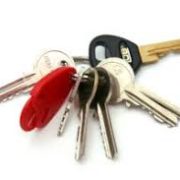Way-Key – mobility assistant for people with dementia
Previous technical approaches are either unusable for people with dementia due to the complexity of the operation, or they have been limited to pure tracking or monitoring functions that do not allow the person with dementia any freedom and no autonomous action.
Way-Key therefore tried an opposite approach: opening up paths and promoting mobility. People with mild to moderate dementia, for whom independent mobility is possible and a legitimate need, Way-Key could always accompany them to the extent necessary, but above all, bring them home safely, and for the right amount of exercise at the right time to care. Relatives or nursing staff are only included if necessary. The guiding principles are protection of privacy, human dignity, ethics by design, usability and non-discrimination.
In order to avoid common problems with acceptance and use, the Way-Key mobility assistant is connected to a commodity that affected persons are very likely to carry with them outside the home (regardless of gender and lifestyle) – the key to the home or house, and is therefore installed as a keychain (as usual with old hotel keys).
In the Way-Key Project, the Academy for Research on Aging focuses on evaluating user tests. The experience gained from the field trial lasting several months was be collected and evaluated in order to be able to adapt Way-Key to the needs of our target group as closely as possible.
Project partners: Technical University Vienna – Department for Human-Computer Interaction, Accessible Map Association, ilogs mobile software GmbH, TeleConsult Austria GmbH
Duration: Autumn 2016 -2018
Funds: FFG “Mobility of the Future” program line (6th call)
Project homepage: http://www.waykey-project.net/


